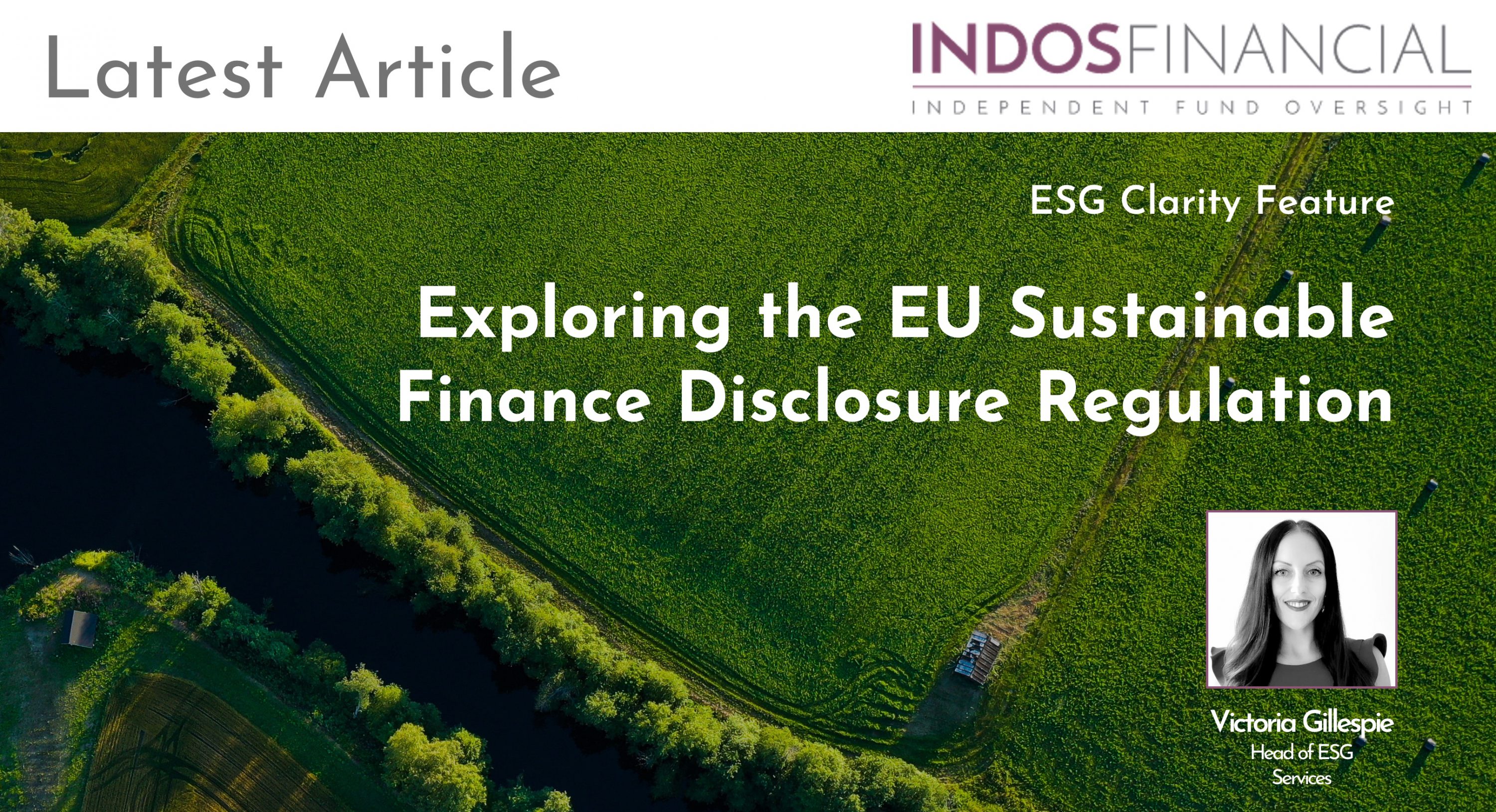In 2015, the United Nations announced its Sustainable Development Goals (SDGs), 17 targets that member states should strive to reach by 2030. In order to achieve these ambitious objectives, trillions of dollars of private capital will need to be invested into sustainable programmes and initiatives. Since then, the European Union (EU) has been at the forefront of developing new regulations supporting the SDGs. From March 2021, a new EU Sustainable Finance Disclosure Regulation (SFDR) will come into force putting sustainability at the heart of the EU financial system.
SFDR will have a wide-ranging impact. It applies at both the asset manager and product level and captures a broad range of firms – as opposed to just those which market themselves as being ESG (environment, social, governance) focussed. In summary, it will affect managers regulated under the AIFMD (Alternative Investment Fund Managers Directive), UCITS and MiFID (Markets in Financial Instruments Directive). The rules will also impact managed accounts. So what does it mean?
SFDR will require all asset managers to publish policies on their website outlining how sustainability risks are integrated into their investment decision making processes. Asset managers will also need to disclose – on a comply or explain basis – details about these policies and the potential adverse impacts of investment decisions on sustainability factors. The transparency requirements for investment firms managing ESG focussed products will need to be even more comprehensive.
The proposals have elicited a mixed response from the investment management industry. Some industry bodies – including the European Fund and Asset Management Association (EFAMA) warned that the March 2021 deadline for SFDR compliance was unrealistic. Moreover, EFAMA said that a lot of the data required to fulfil the SFDR’s disclosure obligations was simply not available, before adding that ESMA (European Securities and Markets Authority) had yet to publish ESG standards. Conversely, several asset management groups have thrown their support behind the new regulations and the go-live date, arguing it will prevent firms from greenwashing their portfolios.
Elsewhere, Brexit is creating all sorts of logistical challenges for SFDR. As things stand, the UK is expected to implement SFDR in March 2021 once the Brexit transitional period expires. However, the UK Government has not confirmed if the next level of requirements (the Regulatory Technical Standards) will be implemented. As a result, there is uncertainty about how UK firms will be affected by the SFDR in practice. Despite this, SFDR is crucially important for the industry, and it something all investment firms should be paying close attention to.
Notwithstanding that SFDR will become a compliance requirement, both institutional and retail investor interest in ESG continues to grow apace and has arguably accelerated dramatically as a direct result of the ongoing Covid-19 crisis. With competition for investor capital expected to ramp up as the recession takes effect, managers cannot afford to ignore client demands for greater transparency around how they take ESG factors into account.
There is also a compelling performance argument for managers to incorporate ESG assets into their portfolios with reports suggesting ESG products have performed strongly relative to non-ESG products during the crisis and associated market downturn. This has translated into inflows. Recent data from Morningstar confirms global inflows into sustainable funds were up 72% in the second quarter of 2020, buoyed by the broad market recovery from the first quarter sell-off. As a result, assets in ESG-focused funds now stand at around $1.1 trillion, more than double the levels in 2016.
The continued inflows speak volumes of the growing investor interest in ESG issues, especially in the wake of the Covid-19 crisis. Asset managers that do not embrace ESG both at a management company level (factors such as the firm’s carbon footprint, diversity and inclusion, social responsibility) and within their investment processes (how they consider or incorporate ESG factors into their decision making), are at risk of being left behind.
SFDR is an excellent opportunity for managers to articulate how seriously they are taking ESG. With little more than six months to go, managers need to turn their attention to documenting their ESG policies and procedures.
By Victoria Gillespie, Head of ESG, INDOS Financial
This article was first featured in ESG Clarity: https://esgclarity.com/sfdr-will-highlight-the-asset-managers-serious-about-esg/




